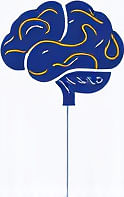Focus Music as a Tool for ADHD in Remote Work
 by Max Miller
by Max Miller
Explore how focus music can help adults with ADHD maintain concentration during remote work. This article offers practical tips on selecting and using music to boost productivity and achieve better work-life balance, all while supporting neurodivergent needs.

Remote work presents unique opportunities for adults with ADHD, allowing flexibility in schedules and environments. However, it can also bring challenges like distractions and difficulty maintaining focus. One effective strategy involves using focus music to create a supportive work atmosphere.
Many adults with ADHD experience difficulties with attention and hyperactivity. These traits can make sustaining focus in a home setting tough, especially without the structure of an office. Focus music serves as a simple yet powerful aid, helping to minimize distractions and promote a steady workflow.
In a remote setup, creating a personalized work environment is key. Focus music can act as a background tool that blocks out unwanted noise. For instance, instrumental tracks or ambient sounds often work well because they lack lyrics that might pull attention away. This approach can lead to improved productivity for those managing ADHD.
Benefits of Focus Music for ADHD
Focus music offers several advantages. It can help regulate attention by providing a consistent auditory cue, making it easier to stay on task. For adults with ADHD, this means less time spent fighting wandering thoughts and more time being productive.
Another benefit is its role in managing stress. Working from home might involve interruptions from family or household duties, which can exacerbate ADHD symptoms. By listening to calming music, individuals can build a mental barrier against these disruptions, fostering a sense of calm.
Choosing the Right Music
Selecting appropriate music is essential. Options vary, but genres like classical, lo-fi, or nature sounds are popular choices. For example, someone with ADHD might prefer steady rhythms that encourage flow without overwhelming the senses.
Experimentation is important. One person may find that upbeat electronic tracks help maintain energy, while another benefits from soft piano pieces. The goal is to find what resonates personally, ensuring it aligns with individual needs in remote work.
Practical Hacks for Integration
Incorporating focus music into daily routines can be straightforward. Start by setting aside specific work periods, such as using the Pomodoro technique with 25-minute intervals. During these times, play your chosen music to enhance concentration.
Here are some hacks to try:
- Use apps or playlists dedicated to focus music, scheduling them to play automatically during work hours.
- Combine music with other strategies, like breaking tasks into smaller steps, to build momentum.
- Adjust volume and type based on the task; louder music for routine work and softer sounds for detailed activities.
For adults with ADHD, combining these hacks can lead to better outcomes. Remote work thrives on such adaptations, allowing for a customized approach that supports neurodiversity.
Addressing Potential Challenges
Not all music works for everyone. Some individuals with ADHD might find certain sounds stimulating rather than helpful, leading to increased restlessness. In these cases, it's useful to track what works and what doesn't, perhaps keeping a simple journal of sessions.
Additionally, balancing music with breaks is crucial for overall well-being. Over-reliance on auditory aids might neglect other aspects of health, so incorporating quiet periods or physical activity can maintain equilibrium.
Real-Life Examples
Consider Sarah, who works remotely as a writer with ADHD. She uses focus music during her morning sessions to get into a productive state. By starting with ambient tracks, she finds it easier to outline articles without getting sidetracked.
Or take Alex, a developer with autism traits, who pairs focus music with visual timers. This combination helps him stay engaged in coding tasks, reducing the overwhelm that remote work can sometimes bring.
These examples show how focus music can be adapted. For those with ADHD, it's about finding tools that fit personal styles and enhance daily performance.
Tips for Long-Term Success
To sustain benefits, make focus music a regular part of your routine. Review and adjust your choices periodically, ensuring they continue to support your goals in remote work.
Remember, seeking input from peers or professionals can provide further insights. Building a network of support is valuable for adults navigating neurodivergent experiences.
In essence, focus music stands out as a practical resource. It empowers individuals with ADHD to thrive in remote settings, promoting both productivity and a healthier work-life balance.
By embracing such strategies, many find renewed confidence in their abilities, turning potential obstacles into opportunities for growth.
